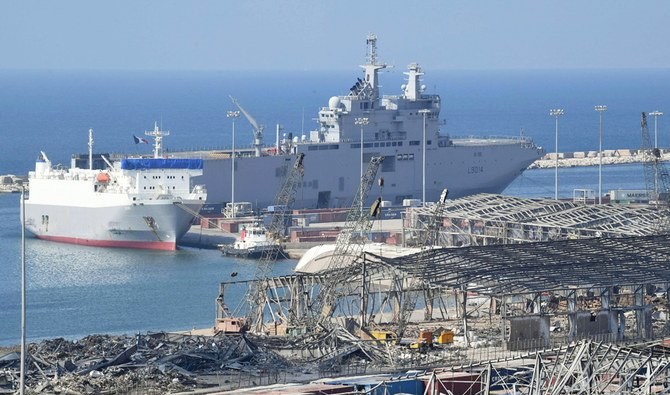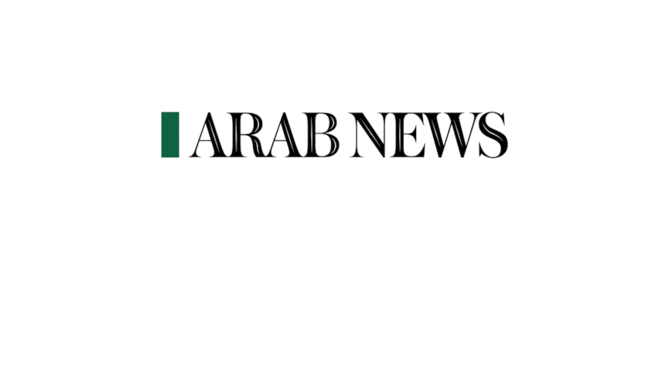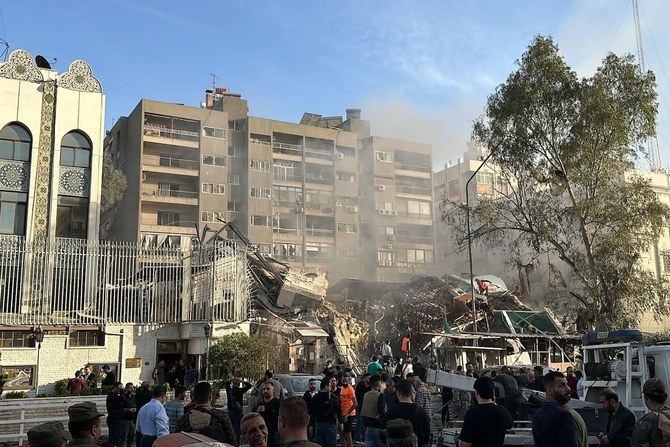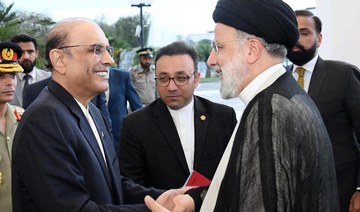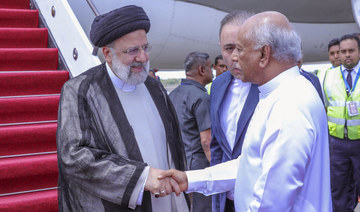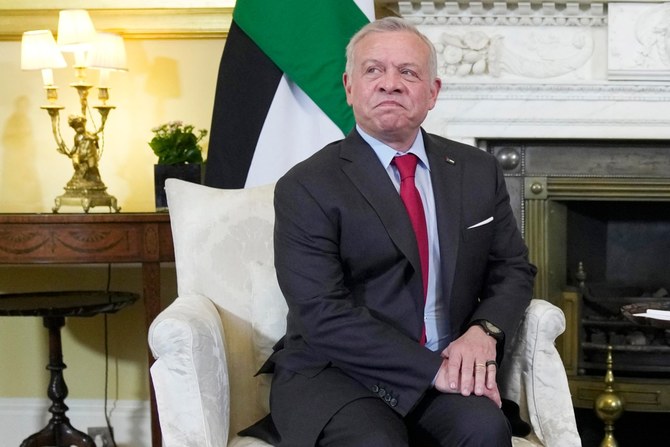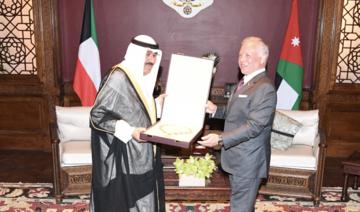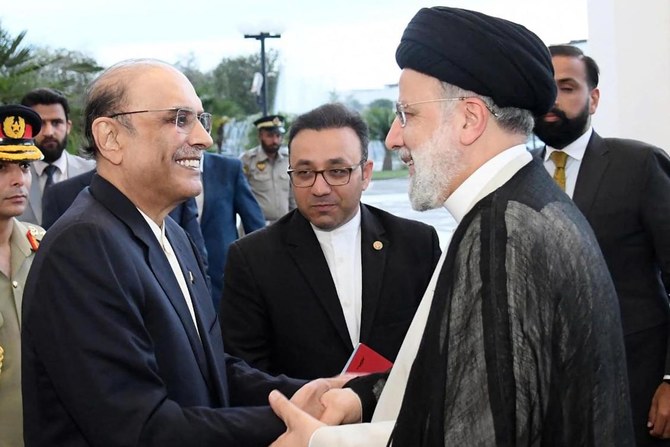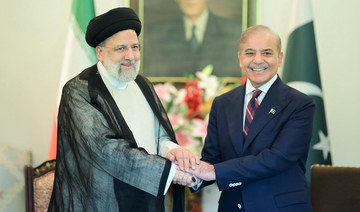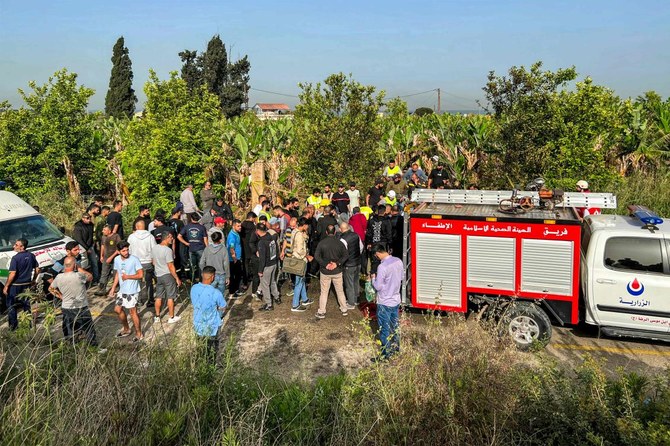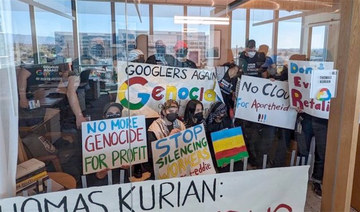BEIRUT: Families of the Beirut blast victims have demanded an international probe into the “massacre,” with an FBI team set to arrive in Lebanon on Sunday to join the investigation.
At least 170 people were killed and thousands were wounded following the explosion of 2,750 tons of ammonium nitrate in a warehouse at the Port of Beirut on Aug. 4.
It destroyed vast swathes of the capital, leaving hundreds of thousands homeless and stoking anger about authorities’ negligence and corruption.
Lebanon’s government under Prime Minister Hassan Diab resigned earlier this week following days of demonstrations demanding accountability for the disaster.
Lawyer Nada Abdelsater said on behalf of the victims’ families: “The victims’ families do not trust the security and political system in Lebanon and believe it to be the suspect even if it was not the only one involved in this massacre.”
She said that the only legal way for an international investigation - and international prosecution - to take place was for the UN Security Council to send an investigative and fact-finding committee to Lebanon before the crime scene was further compromised. “After that, international prosecution takes place either by referring this crime against humanity to the International Criminal Court or by establishing a special court to look into this crime.”
She read out a demand signed by thousands of affected families. It was addressed to all UN Security Council member states and she said that copies had been sent through these countries’ ambassadors to Lebanon.
Foreign dignitaries continue to flock to Lebanon following the tragedy.
US Assistant Secretary of State for Political Affairs David Hale met Lebanese officials on the second day of his visit to Beirut. He will meet political, spiritual, and civil society figures on Saturday.
His trip coincides with that of Iranian Foreign Minister Mohammad Javad Zarif, who arrived in Beirut on Thursday evening. But Zarif did not go to the areas devastated by the explosion, despite his visit being billed as an expression of solidarity with Lebanon during its time of need.
The first to visit Beirut after the explosion was from French President Emmanuel Macron, followed by Hale and French Armed Forces Minister Florence Parly. They were welcomed by the Lebanese, who requested their help to rescue Lebanon.
Zarif visited President Michel Aoun, Parliament Speaker Nabih Berri, Diab, and caretaker Foreign Affairs Minister Charbel Wehbe.
It was reported that Iran sent a field hospital to Lebanon. But it was placed on the campus of the Lebanese University in Hadath in the southern suburbs of Beirut, far from the site of the explosion and those directly affected by it.
According to the media office of Baabda Palace, Hale said at his meeting with Aoun that President Donald Trump's directives were that the US be present to help Lebanon. Hale said that his country would not intervene in Lebanon’s internal affairs, but that it would cooperate with Lebanese authorities, as well as friends and allies in the region, to help Lebanon and its people. He stressed that the Lebanese people must be listened to and their aspirations must be fulfilled.
He also highlighted the importance of achieving reforms in Lebanon and proceeding with the fight against corruption, as this path would open the door to funding from the Cedar (CEDRE) Conference and cooperation with the IMF “because this is what Lebanon needs now.”
Aoun told Hale that the investigation into the explosion would continue, and what was required was help in learning the circumstances surrounding the arrival of the ship that was carrying the deadly ammonium nitrate.
He welcomed the arrival of the FBI team and said a number of port officials were under investigation. He said that the first task of the new government was to achieve reforms, fight corruption and follow up on a crime audit decided by the Cabinet.
Parly, after her meeting with Aoun, said that France was and would remain by Lebanon’s side. She announced that Macron had ordered the opening of an air route between Lebanon and France to provide aid.
She also conveyed Macron’s message to Aoun and said that her country had provided much aid and would provide more, especially in terms of equipment that helped to remove rubble, complete relief work, and survey the damage.
She said that 750 French soldiers would participate in these tasks and “this is evidence of France’s standing with the Lebanese people.”
French experts were assisting in the ongoing investigation, she added, and this involvement was in conjunction with sending food and building equipment. “You can rely on France,” she said, emphasizing that Macron had pledged during his Beirut trip to put all of its resources at Lebanon’s disposal.
Parly hoped that there would soon be a new government in order to proceed with the reforms the international community deemed necessary. She said that Macron would return to Lebanon on Sept. 1 to complete the dialogue he had initiated with Lebanese officials and leaders, and to learn about repairs to devastated areas.
But Zarif criticized the French initiative to facilitate the formation of a new Lebanese government.
“Lebanon’s government and people are the only ones to decide on the government, and no one should exploit the circumstances to dictate to Lebanon what to do,” he said. “I believe it is not humane to take advantage of this tragic situation to dictate to Lebanon what to do.”



